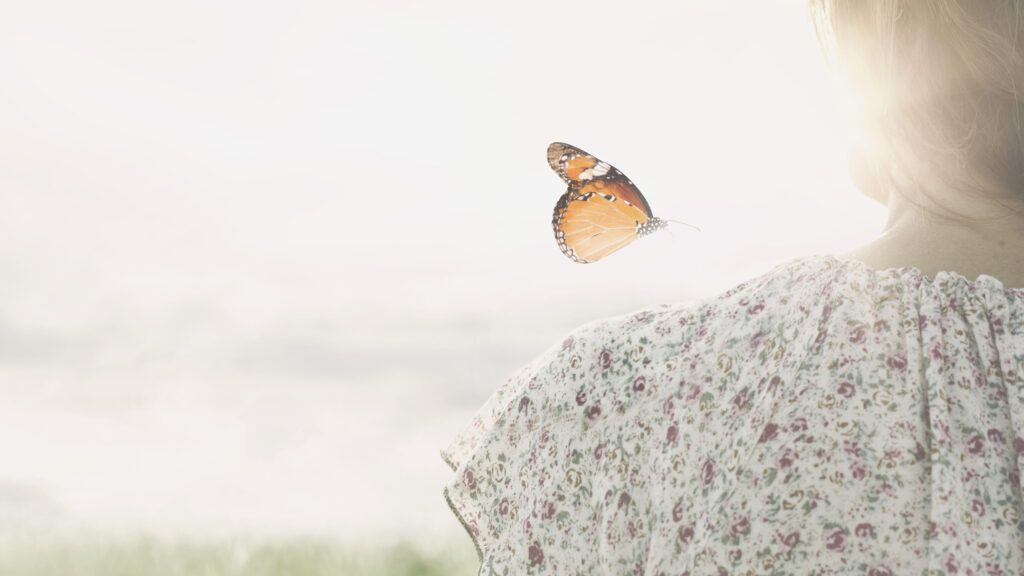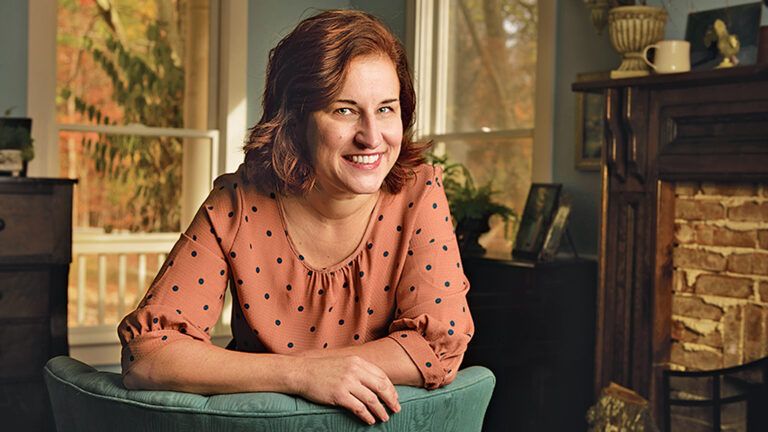A dream, realer than real, in which a beloved relative, who passed away years earlier, suddenly appears. The heavenly sign, in the midst of a tough day, that could’ve only come from your mother up above. Or, a voice, seemingly from out of the blue, that sounds just like your deceased grandfather.
Some of the most miraculous and angelic encounters involve the dead offering some guidance, comfort, protection or a message from beyond. This begs the question: do our loved ones become angels—or more specifically, our guardian angels—when they die?
It’s a popular notion, one that pops up over and over again in popular culture, from books to movies where the deceased reappear to those they love on earth. So what’s truth and what’s fiction? Guideposts.org talked to Dr. Charity Virkler Kayembe, who has a doctorate in biblical studies and is the author of Everyday Angels, to find out.
Guideposts.org: There are many miraculous stories out there about people who receive signs from their deceased loved ones. But can the dead become angels?
Dr. Charity Virkler Kayembe: Obviously, we all want comfort after a loved one dies, and we want someone from heaven to be watching over us. But that’s God—He’s the one watching over us with His heavenly host, a.k.a. His angels. The angels, though, are not our deceased relatives. They’re a different, separate order of beings. The Book of Revelation gives us a picture of heaven—there are angels there, but there are also people. And we know that we are created in God’s image, whereas angels are not. That right there shows us we are different; so the spirits of our loved ones do live on after death, but not as angels.
GP.org: Who are our guardian angels then?
Kayembe: God takes into account exactly who we are and matches us up to the angels who will bring emotional equilibrium and balance to our lives. I always say they’re like the best version of your very best friend. They are spirit beings. Hebrews 1:14 says that angels are ‘ministering spirits sent to serve those who will inherit salvation.’ Again, that’s a distinct order of beings that God created before people. That’s another reason we don’t turn into angels—they were here first.
GP.org: If we don’t become angels when we die, what will we do in heaven?
Kayembe: Scripture doesn’t really talk about what work we’ll be doing; the one job that’s clear is that we will be worshipping God. Whatever we end up doing, though, I think it’ll be great.
GP.org: A lot of people receive mystical signs from beyond. If their loved ones aren’t behind it, who is?
Kayembe: Let’s give the credit to God. Every good and perfect gift—including angels—comes from above, from the Father of life. So if you do receive a sign or experience synchronicity, it very well could be from your guardian angel watching out for you.
GP.org: Why would God send us a message using something we associate with a deceased relative, say, your mother’s favorite flower? Is he simply speaking to us in a language we’ll understand?
Kayembe: Well, absolutely! God knows every single thing about us. The hairs on your head are numbered. He knows what’s going to be the most impactful, significant symbol for us and He wants to encourage and bless us. So, yes, He would use your mother’s favorite flower, or whatever it is, just to let you know that He’s with you, He’s watching over you, and He hasn’t forgotten you.
GP.org: Research shows that people who are dying often have dreams or visions where a deceased friend or relative appears. Why do you think that is?
Kayembe: I believe God wants to comfort us in that time of transition and doesn’t want death to be a fearful thing. It’s not necessarily a dead relative visiting. Rather, if you’re about to die and are afraid, God may show you a glimpse of the other side—your friends or family in heaven—in order to give you a sense of joy and peace.
GP.org: What about deceased relatives who appear in dreams? Are they actually visiting us or is something else going on?
Kayembe: Dreams are bridges to the supernatural and are usually symbolic. If a deceased relative comes to you in a dream, I would interpret that person as a symbol, the same way I would interpret a living person in a dream as a symbol. So, for example, if your grandmother was very wise and appears in a dream, I wouldn’t say it’s your grandmother herself. Instead, she may represent the wisdom God wants to give you in a situation.
GP.org: What does it reveal about God that he would send us messages in this manner, i.e. using loved ones who have passed away?
Kayembe: God is such a loving, affectionate, compassionate Father—more than we could ever imagine. He will do everything he can just to encourage us at a specific time of need. He knows what will bring us the most comfort in that moment.




